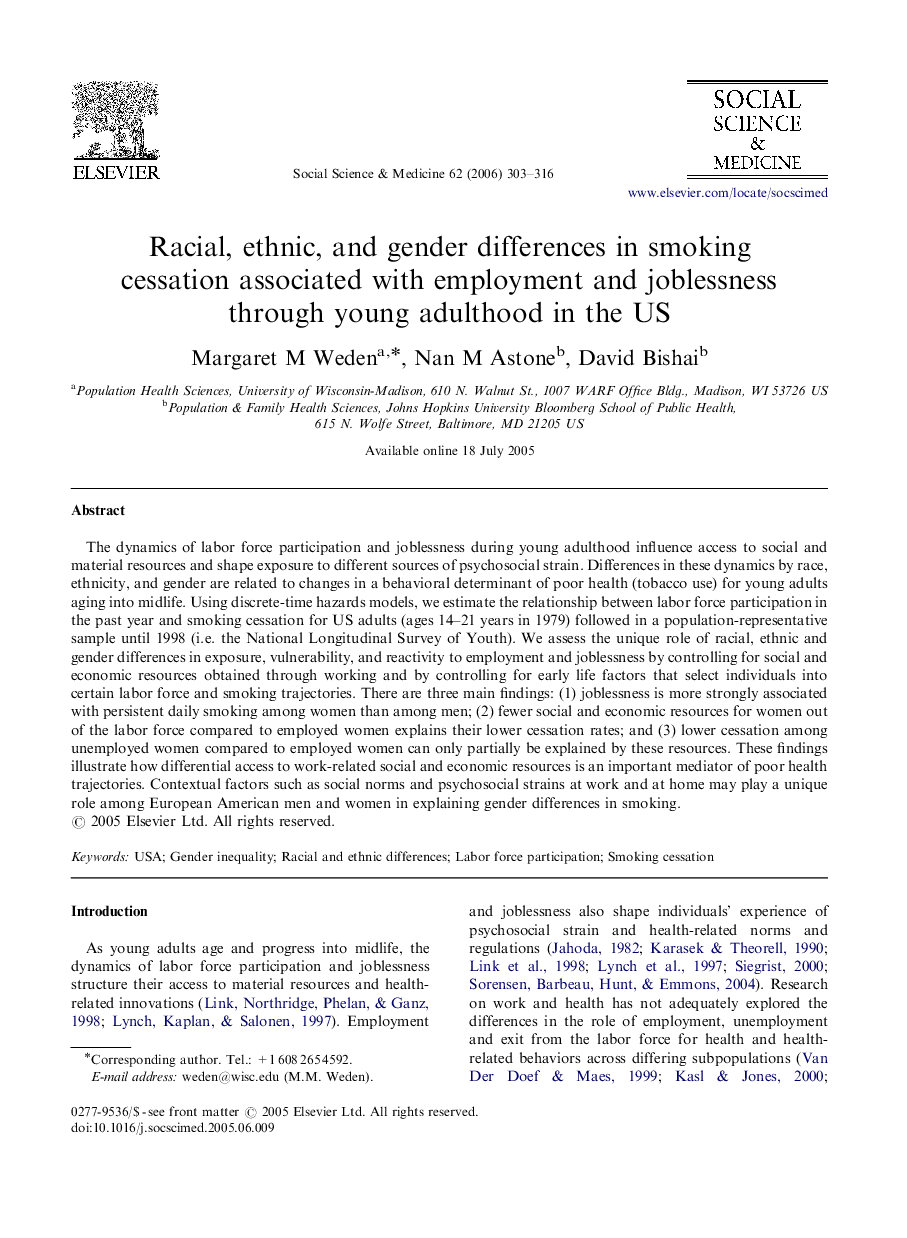| کد مقاله | کد نشریه | سال انتشار | مقاله انگلیسی | نسخه تمام متن |
|---|---|---|---|---|
| 955133 | 927706 | 2006 | 14 صفحه PDF | دانلود رایگان |

The dynamics of labor force participation and joblessness during young adulthood influence access to social and material resources and shape exposure to different sources of psychosocial strain. Differences in these dynamics by race, ethnicity, and gender are related to changes in a behavioral determinant of poor health (tobacco use) for young adults aging into midlife. Using discrete-time hazards models, we estimate the relationship between labor force participation in the past year and smoking cessation for US adults (ages 14–21 years in 1979) followed in a population-representative sample until 1998 (i.e. the National Longitudinal Survey of Youth). We assess the unique role of racial, ethnic and gender differences in exposure, vulnerability, and reactivity to employment and joblessness by controlling for social and economic resources obtained through working and by controlling for early life factors that select individuals into certain labor force and smoking trajectories. There are three main findings: (1) joblessness is more strongly associated with persistent daily smoking among women than among men; (2) fewer social and economic resources for women out of the labor force compared to employed women explains their lower cessation rates; and (3) lower cessation among unemployed women compared to employed women can only partially be explained by these resources. These findings illustrate how differential access to work-related social and economic resources is an important mediator of poor health trajectories. Contextual factors such as social norms and psychosocial strains at work and at home may play a unique role among European American men and women in explaining gender differences in smoking.
Journal: Social Science & Medicine - Volume 62, Issue 2, January 2006, Pages 303–316